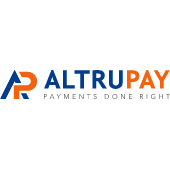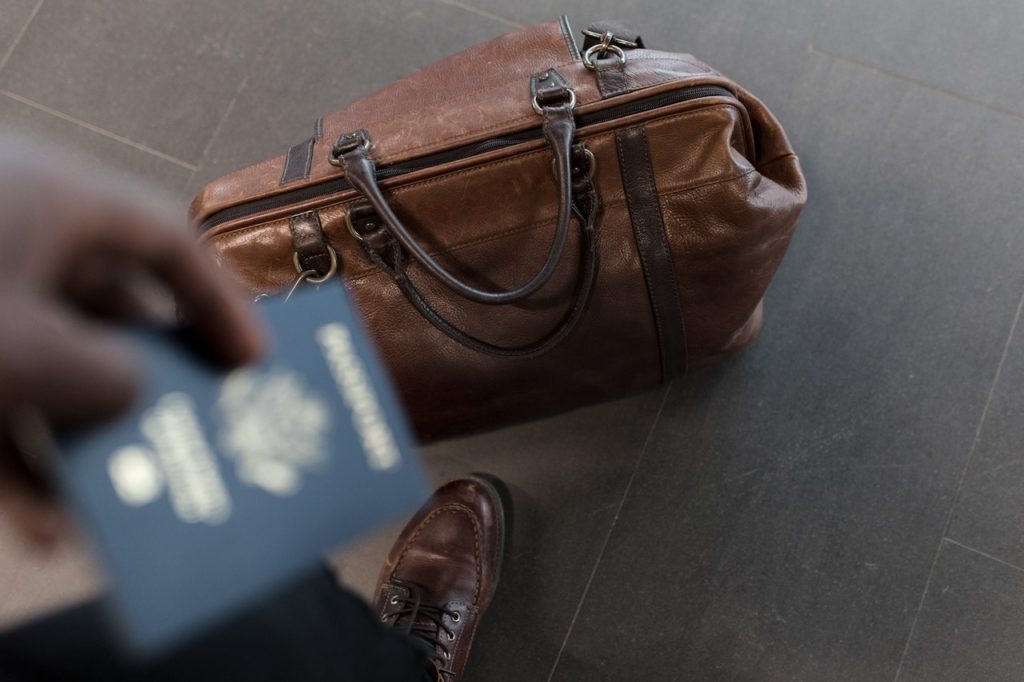Travel Payment Processing Article Overview
- What is It: Travel Payment Processing is the ability for a business to accept credit debit, ACH and eCheck payments from customers.
- Why We’re Talking About It: Travel Payment Processing is essential for travel businesses to be able to accept credit, debit and ACH payments from customers. Unfortunately, it’s a surprisingly complicated issue for many travel businesses.
- Who We’re Speaking With: We interviewed industry expert, Bill Glass of AltruPay a credit card processor serving the travel industry to help explain the world of credit card processing for travel related businesses.
- What We Cover: In our discussion, Bill shed light on pricing, boosting revenue, dealing with processing fees, and how customized payment solutions can benefit travel businesses. This guide, specifically crafted for businesses in the travel industry, be it a startup or an established player in the travel business, provides easy-to-understand, actionable advice on securing payment processing and maintaining it for the long term.
Let’s begin our journey to explore the realm of travel payment processing in depth.
Who We’re Speaking With: Bill Glass of AltruPay
Bill Glass is the founder and chief operating officer of AltruPay, and he brings a wealth of knowledge about travel payment processing strategies. At its core, AltruPay is what they call a full-risk provider. Now, what does that mean? In simple terms, it means that AltruPay is flexible in which businesses they can support. They deal with a wide variety of payment methods, which include not only traditional credit card processing but also ACH (that’s short for Automated Clearing House), being part of the FedNow program, and they also provide traditional merchant account related services such as chargeback protection.


Most importantly, being a full-risk provider means they can manage accounts that vary in risk levels. Whether your business is considered low-risk or high-risk, AltruPay has you covered.
What Companies Are Considered ‘Travel’ Businesses
So, when we say “travel industry,” what exactly are we talking about? According to Bill, the travel industry can be split into three major categories:
- Air Travel: This includes airlines and other aviation services.
- Cruise Travel: Think of companies that offer sea adventures on cruise liners.
- Full-Service Agencies: These are one-stop shops that might provide both air travel and cruise travel services and additional offerings like car rental and hotel bookings.
Why the Travel Industry is a Unique Challenge for Payment Processors
You might wonder, “What makes these travel businesses unique or risky to credit card processors like AltruPay?” Well, Bill simplifies it down to two main reasons.
Firstly, it’s the booking timeline. Travel businesses often allow customers to book their travel way in advance. This extended timeline can introduce some chargeback risks because of uncertainties that might arise before the travel date.
Secondly, the return profiles of these businesses are a factor. That’s how these companies handle refunds, which can differ based on a hotel booking or an airline ticket, for example. This can create complexity that credit card processors need to manage effectively.

Travel Payment Processing Challenges with PayFacs
Every travel business owner wants smooth and quick payment processing, right? Stripe and Square promise that, but are things as simple as they seem? Let’s explore this based on insights from Bill Glass.
- The Promise of Swift Payment Processing: Is It Real?
You’ve probably heard of Stripe and Square. They’re known as payfacs, short for payment facilitators. They make it easy to start processing payments. You just give them some information about your business; voila, you’re approved to process payments in seconds. Sounds perfect, doesn’t it? But here’s the catch: they start checking your account details after you’ve begun processing. This can happen anytime, from a day to a month later.
- Why This Ex Post-Facto Check Can Be an Issue
These payfacs aren’t very clear about their terms of service. It’s hard for business owners to know what types of businesses they accept, their transaction thresholds, or other important details.
Imagine you’re a travel business owner. You’ve set up Stripe, connected it to your website, and started processing payments. Five days in, they check your account, don’t like something they see, and… they can shut everything down and hold your funds. That’s the worst-case scenario, but according to Bill, it’s a common issue when dealing with Stripe, Square and other PayFacs.
How To Get Approved For A Travel Merchant Account
Gaining approval for a merchant account can be a hurdle for travel businesses. Based on the expert advice from Bill Glass, here’s a look at what you can do to improve your odds.
- Be Prepared with a Refund Mitigation Strategy
As a travel business owner, your success in securing a merchant account could hinge on having a sound refund / return mitigation strategy. But what does this mean?
When you book travel arrangements, it may not always be for the immediate future. Some agencies book 30, 60, or even 90 days out, and on sites like united.com, you can book almost a year ahead. This is where a mitigation strategy comes into play.
It’s a plan to protect you from any downsides or risks associated with these bookings. When you can clearly explain this strategy to your bank or payment processor, it can help them feel more at ease with approving your account, even if you book things out 90 days or more. - Provide ALL Required Underwriting Information
Regarding underwriting, travel businesses must prepare certain documents and data, as advised by Bill Glass. Typically, the package for underwriting involves:
- Basic corporate articles and other business-related documents.
- If available, the previous three months of processing and bank statements. These documents help underwriters check your financial health and ensure you can cover any potential risks.
- Your Billing Profile: This is a document that covers how and when you’re billing and booking.
- Any Travel Industry Licenses or Associations: Do you have any licenses? Are you a member of certain associations? These can be signs that you’re a legitimate business investing in your organization to ensure responsibility and compliance. For instance, holding an ARC license or an IATA certification can have a positive impact.
- Have Key Certifications and Licenses In Place
While “certification” and “license” can be used interchangeably, they play a vital role in getting approved for a travel merchant account because they indicate legitimacy to the underwriting team. There are various organizations providing certifications to travel businesses.- ARC (Airlines Reporting Corporation): Mainly for airline travel within the U.S. ARC is simple to get and is leading the way in certifications. It enables direct booking with airlines, which many people may not know. With ARC, there’s no financial punishment from the airline until the ticket is used. This makes it easier for businesses and reduces the risk for processors, ensuring customers can’t charge back without justification.
- IATA (International Air Transport Association): The international equivalent of ARC for airlines.
- CLIA (Cruise Lines International Association): Primarily for cruise lines.
Other: Smaller certifications like the U.S. Travel Association and the American Society of Travel Advisors exist. These organizations offer certifications for individuals or entire companies
How The Approval Process Works for a Merchant Account in Travel Business
Once you’ve submitted your application with all supporting documents, here’s how the underwriting process actually works for travel merchant accounts:
- Quick Approvals for Prepared Businesses
Businesses that have their required documents in order and are ready to sign the bank agreement can expect a quick turnaround, often within 48 hours. This applies to the vast majority – about 98% – of travel businesses. - Factors Influencing the Approval
A few key factors can affect the approval process. The credit score of whoever guarantees the account is crucial. Low funds in the bank account can also be a hurdle. Besides, the lack of associations or unclear booking methods can make it difficult for underwriters to understand your business. For instance, a travel company was noted taking payments and booking plane tickets using their company credit card – a method that doesn’t support customers well.
In a nutshell, be ready with your documents, have a good financial standing, and have clear booking methods to sail smoothly through the approval process, and make yourself available to speak with an underwriter if they have additional questions.

Determining Pricing and Boosting Revenue for Travel Merchants
Before obtaining a travel payment processing account, you should know what a good price range is, and once you have a travel merchant account some innovative ways to use payments boost your businesses top line. Here’s some advice from industry expert Bill Glass.
- Good Price Range for Travel Merchant Accounts:
The pricing for travel merchants can vary significantly. It could be anywhere from 50 to 300 basis points over interchange. This wide range depends on several factors. For example, if the business is a startup, it might face higher pricing due to increased risk. - Payment Strategies to Boost Travel Business Revenue:
How can a travel company increase its earnings? BNPL, or “Buy Now, Pay Later”, is a hot trend. Although it’s being pulled back a little in the travel space, it has benefitted many businesses.
However, marketing is the secret sauce for most successful travel companies, especially through social media. This strategy has allowed many businesses to push a lot of volume and ultimately increase their top line. So it’s not just about payments but how you get your brand out there.
Should Travel Businesses Use Cash Discount Credit Card Processing
A travel business has to decide, who handles the Travel Payment processing fees – the company or the customer? Here’s some wisdom from Bill Glass.
A business can price a merchant account in two main ways: traditional and dual pricing cash discounts. In the traditional model, the business pays a certain percentage over the interchange, usually 50 to 300 basis points.
In the dual pricing cash discount model, a business can pass on the cost of transaction fees to the customer. This means the customer pays a small additional fee for each transaction. This approach isn’t uncommon in e-commerce but is more suited for in-person travel agencies and businesses where card-present transactions are prevalent.
So, it depends on the business owner’s strategy, whether to bear the costs themselves or pass them on to the customer. This choice can affect the overall customer experience and, in turn, business success.
Customized Payment Solutions and Fraud Protection For Travel Businesses
Bill Glass emphasizes that tailor-made payment processing solutions can protect against a growing travel business problem: friendly fraud.
What is friendly fraud? It’s a type of fraud where customers purchase and enjoy the service (like an airline ticket) but later claim to their bank that the transaction wasn’t as expected. As a result, the transaction gets charged back. This leaves the agency without the booking money and the money received from the consumer.
Customized payment solutions can help with this problem. They can offer strategies to lessen this risk and protect the business. Understanding your ‘concerns of profile’ or potential risks is key. So, it’s not only about handling payments but also about safeguarding your business from fraud. Having a plan can save you a lot of headaches – and money – in the future.
Wrapping Up: Navigating Travel Payment Processing
In conclusion, navigating the ins and outs of travel payment processing can be critical to the success of your travel business. Paying close attention to areas like the right pricing range for travel merchants, innovative methods to boost your top line, and mitigation strategies against friendly fraud can make all the difference.
For more information, contact Bill Glass and his team at AltruPay. They offer guidance and compliance assistance to make the process easier. Their team, dedicated to travel payment processing, can guide you on compliance and through processes like IATA registration.
Finally, for businesses seeking specialized credit card processing solutions, TravelPayments.com offers comprehensive support tailored to the unique needs of the travel industry. Choose a partner like TravelPayments.com that understands and supports your travel payment processing needs; visit TravelPayments.com for a free quote today.
Episode Transcript
Megha: Welcome to Travelpreneur, the weekly business show for the travel industry. I’m your host, Houston based travel journalist Megha McSwain. Each episode, we’ll be exploring what it takes to thrive as a business owner in the travel industry. From conversations with leading travel business executives and industry focused venture capitalists to exploring the innovations that are shaping the next generation of travel business, if it impacts the travel industry, we cover it here on Travelpreneur. Today we have the pleasure of speaking with Bill Glass, founder and chief operating officer of AltruPay a payment processing and merchant account provider committed to providing low rates, flexible underwriting and quick approval. As a travel payment company, we know the importance of finding a reliable and trustworthy payment processing partner that understands the unique needs of a travel business. Hello, Bill. Thanks for joining us today.
Bill: Of course. Thanks for having me.
Megha: For sure. Well, let’s dig right into it. Can you tell us about AltruPay and the solutions that you offer?
Bill: Yeah. So AltruPay is a full risk provider. We cover multiple different types of payment methodologies. So ACH, part of the FedNow program and of course traditional merchant accounts, full risk just means that we cover low risk traditional accounts all the way up to some high risk levels as well.
Megha: Well, when you hear travel industry, what are the most common types of businesses that fit into that market?
Bill: Great question. So three main categories. We say, hey, so obviously air travel, cruise travel, and then more of that full service agency. They may do both of those. Car rental, hotel, etcetera.
Megha: And why are travel businesses such as the ones you mentioned, unique or risky in the eyes of credit card processors?
Bill: So really, it’s going to come down to two main categories. And obviously we could get really granular into those. But it’s going to be the risk associated with how far out they look and then obviously just their return profiles and how they book those, whether it’s a hotel or however they book that that travel.
Megha: Yeah, that makes sense. Well, right now I can go on Stripe or Square and tell them I’m a travel business and I’ll be able to process a payment in ten minutes. Why is that a bit misleading?
Bill: So they’re both PayFacs payment facilitation is really hot in our industry right now. And it’s exactly what you said. Let’s get as much information down as we can from the merchant, the business owner themselves. Let’s get them approved and let’s get them processing. What that means is they’re going to underwrite the account after the fact. That could be a day, five days, ten days, 30 days after their terms of service aren’t really clear on what types of businesses they accept, what type of thresholds and levels they don’t really get into the granular aspects, and a business owner can’t really read into that, nor have they ever really been taught to maybe ask the right questions. For example, you could go on right now, you could fill it out on Stripe, great APIs, you can connect it to your website, you can be processing in five days. When they actually do underwriting, they can shut everything down and hold all your funds.
Megha: Oh, wow.
Bill: Worst case scenario, that’s really what we see a lot when we’re dealing with Square and Stripe is past history. They review something and it just they lock up their funds, which is never a good thing in the travel industry.
Megha: Right. Well, what can travel businesses do to best position themselves to be approved for a merchant account?
Bill: I think when you’re looking at the big picture, the best thing to do is make sure you have a really good mitigation strategy in place so you can be a little bit more free on how you book and your time, your timeline. A lot of agencies will book 30 and 60, 90 days out and then we’ll see some that you can book six months out. I can go on United.com right now and book almost a year out. So make sure that you have a really good mitigation strategy that’s going to protect your downside, your risk exposure. When you’re able to explain that to your bank or your processor, it makes them feel a lot more comfortable with those terms. And you’re booking things out. 90 days out. Et cetera.
Megha: So what information should a travel business be prepared to provide during underwriting?
Bill: So traditional underwriting packages consist of your basic corporate articles and all of your business type stuff? We do like to see three months of previous processing if they have it, and three months of their past bank statements. We’re just looking for some liquidity stuff and making sure they can cover any exposure that they could have. And then at the same time, we want to look at what they call their billing profile, Right? So how far are they billing, How are they billing, how are they booking? Are they do they have certain license? Are they part of certain associations? These all kind of telltale signs of are they legit? Are they on the up and up? Are they investing in their organization to have someone responsible to get and manage their ARC license or their certification, their IRA certification? Et cetera.
Megha: So be prepared to provide all of that. How quickly, can travel businesses expect to receive approval for a merchant account?
Bill: The good ones, which 98% of them are the good ones out there that have all of their stuff already together. And it’s into us and we have the bank agreement signed. We’re probably looking at 48 hour turnaround.
Megha: What factors might affect the approval process?
Bill: Just high level would be credit score of whoever’s guaranteeing the account. Low standing funds in the bank account, of course, match. That’s the worst of the worst. But outside of that, you’re looking at things like no associations. They’re not tied to anything. It leaves us in a guessing game of how they’re booking things. I’ll give you a. Prime example, we had one travel company to where they were taking payment and just turning around on their company credit card and booking the plane ticket. Yeah, it’s not going to fly real well because you can’t support your customer that way.
Megha: This episode is brought to you by TravelPayments.com. Travel businesses have unique needs when it comes to credit card processing. From large average ticket sizes and tolerance for higher chargeback ratios to simple integrations with the most popular shopping cart systems. The travel industry specialists at TravelPayments.com have you covered? Unfortunately, many of the most popular credit card processors initially accept travel businesses, but without warning, freeze their merchant accounts and the thousands of dollars in them. Because these service providers don’t understand or support the unique needs of travel industry business. Don’t get stuck with one of the big guys who will freeze you out without a moment’s notice. Instead, work with the travel industry specialist who will support your business every step of the way. Visit TravelPayments.com to get a free quote today.
Megha: What type of licensing could be required for travel businesses.
Bill: It’s more of certification and licensing, but, you know, it’s easier to use that term. ARC is more of a domestic association that is here in the US specific to airline travel. Then you have Aida that’s more of an international equivalent to airlines, and then you have a few other ones, for example, CLIA, which is for cruise lines, and then you have a smaller ones like US Travel Association, American Society of Travel Advisors, stuff like that. All of those programs have certifications that you can get either a someone in your group certified or you can get your company certified. And last but not least, ARC. ARC is really important to us. It’s very simple to get. It’s kind of the leading one. It gives you accessibility to book straight to the airlines, and that’s where most people don’t understand it. If you’re on ARC and you’re booking through the airlines direct, you’re not being financially punished by the airline until that ticketing swipe, right? So it gives accessibility to support and us as the processor, we don’t have to worry about you telling your consumer no and your consumer is starting to charge a whole bunch of stuff back.
Megha: Yeah, that makes sense. So what’s a good pricing range for travel merchants?
Bill: So anywhere from 50 basis points to 300 basis points over interchange. That’s a huge swing, but it really just depends on everything that we’ve discussed. Are they on the up and up? Are they maybe a start up with some more risk concern, etcetera?
Megha: What are some ways that you’ve seen travel companies offer payments that have helped boost their top line?
Bill: That’s a great question. BNPL is hot right now. Buy now, pay later. They’re pulling it back a little bit in the travel space, but outside that, it’s typically marketing. The guys that are really pushing a lot of volume are typically on social media and and they’re doing stuff like that. It’s really more of a marketing play.
Megha: Have you seen anything like customers paying the process? Like if there’s a processing fee, the customers are handling that. Have you seen that?
Bill: Yeah, it’s all going to be based on the business owner. So we have two different ways to price a merchant account. I call it traditional, which is you heard me say 50 basis points to 300 basis points over interchange. And then you have things like dual pricing cash discount where a merchant may be able to pass on that cost to a consumer and they have to pay the fee for that transaction. We’re not seeing too much of that on e-commerce really much at all. But that’s going to be more for your in-person travel agent and more card present type stuff.
Megha: Can you tell us more about how customized payment processing solutions can benefit travel businesses specifically?
Bill: Yeah. So when we talk customized, we’re really going to get more into protecting their exposure. Friendly frauds a real deal right now. And friendly fraud is unfortunately one of the biggest things as a payment processor we battled is relied on the merchant side, right? Most of the time the ticket was delivered. Most of the time that they were on the airline flight. But they go to their bank and they are able to tell them, hey, this isn’t what I expected. And so they’re going to charge that transaction back. So now that agency is out, the money of the booking and out the money that they receive from the consumer. So having that mitigation strategy is really important. And just understanding your consumer profile.
Megha: Well, this is really great information, super helpful, Bill. If our listeners want to learn more about you or AltruPay can you share how they can find you or a website or social media where they might be able to learn more.
Bill: Yeah, of course. You can always follow me or AltruPay on LinkedIn or you can go to AltruPay.com and all of our contact information is there. We’d love to reach out. We have an entire team dedicated to travel answering any questions. One of the things we love to say is let’s help you get compliant. We’ve got a step by step process to get you guys registered through ARC as well as Aida and to make the onboarding process just seamless and painless as possible.
Megha: Great. Well, thank you, Bill. It was wonderful getting this insight from you. We look forward to speaking with you again here at Travelpreneur.
Bill: Absolutely. Thank you.
Megha: You’ve been listening to Travelpreneur by TravelPayments.com. Make sure to subscribe on your favorite podcast listening platform so you never miss a new episode, and we’ll see you again soon on Travelpreneur.

